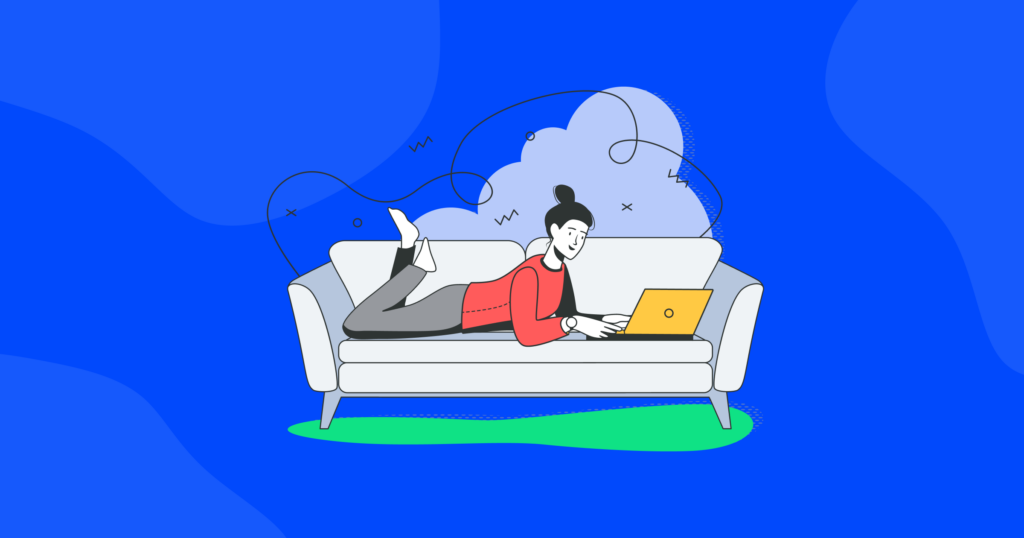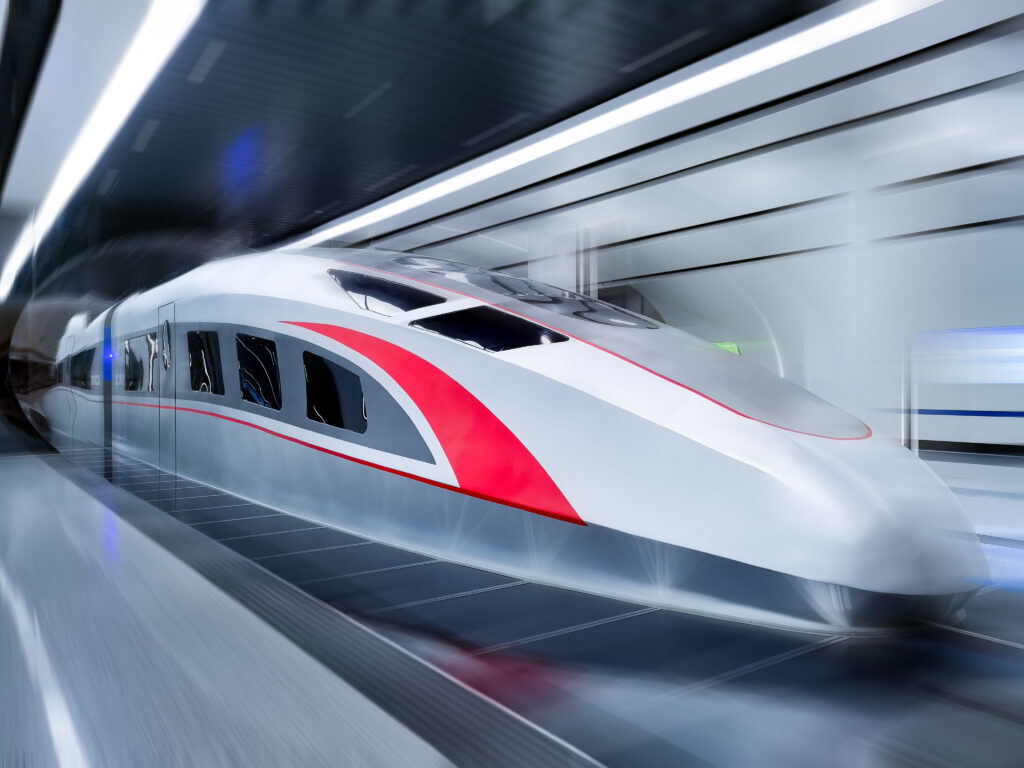

6 Tips to Speed Up Downloads on Your PC

Looking for ways to speed up your downloads and increase download speed on your PC? Waiting for large files to download can be a real drag, especially when you’re on a tight schedule. Fortunately, there are several things you can do to optimize your PC for faster downloads.
In this article, we’ll be sharing some tips and tricks to help you get the most out of your downloads and reduce your waiting time. So, let’s get started!
What causes slow download speed?
Slow download speeds on your PC can be caused by a variety of factors. Here are some of the most common reasons why your downloads might be taking forever.
Slow internet connection
A slow internet connection is one of the main reasons why your downloads might be taking forever. Internet speed can vary depending on a number of factors, such as the type of connection you have, the number of people sharing the network, and the time of day.
Some connection types, such as dial-up and satellite, are notorious for their slow speeds. If you’re using one of these types of connections, you might experience slower download speeds as a result. Cable and fiber-optic connections tend to offer faster speeds, but they can still be affected by network congestion or outdated hardware.
To test your internet speed, you can use online tools such as speedtest.net. This will give you an idea of your download and upload speeds, as well as your ping, which is the time it takes for your PC to communicate with the internet.
Overcrowded network
Another common reason why your downloads might be slow is because of an overcrowded network. This can happen when you’re sharing your internet connection with other people or devices, and everyone is trying to use the network at the same time.
When there are too many devices using the network, it can cause network congestion and slow down your download speeds. This is especially true during peak hours when many people are trying to use the internet at the same time.
To prevent network congestion, limit the number of devices connected to the network, especially during peak hours. Also, try prioritizing your downloads over other activities that use the network, such as streaming videos or playing online games.
Outdated hardware
If your PC is outdated or running on old hardware, it might not be able to handle faster download speeds. For example, if you’re still using a computer that’s more than 5 years old, it might not be able to support the latest network protocols, which can affect your download speeds.
Older hardware might also struggle to keep up with newer software and applications that require more processing power and memory. This can slow down your PC overall, which can also impact your download speeds.
To improve your download speeds, consider upgrading your PC hardware, especially your network card or adapter. A newer network adapter can support faster network protocols and improve your download speeds.
If you’re not able to upgrade your hardware, you can also try optimizing your PC settings. For example, you can try clearing out any unnecessary files or applications, disabling any programs running in the background, and updating your drivers and software to ensure that they’re all up-to-date.
Download settings
Sometimes, slow download speeds can be caused by the settings on your download manager or browser. By tweaking these settings, you can optimize your download speeds and ensure that you’re getting the most out of your internet connection.
One setting to check is the number of simultaneous downloads. If your download manager is set to download too many files at once, it can actually slow down your overall download speeds. On the other hand, if you’re only downloading one file at a time, you might not be using your full bandwidth. Finding the right balance is key.
Another setting to check is the location where your downloads are being saved. If you’re saving your downloads to an external hard drive or network-attached storage (NAS), it can slow down your download speeds. Instead, try saving your downloads to your PC’s internal hard drive or SSD.
Finally, make sure that your download manager or browser is using all available bandwidth. Some download managers and browsers have a default bandwidth limit that can be increased in the settings. By adjusting this setting, you can maximize your download speeds and get your files downloaded faster.
Background applications
Your PC might have several programs and applications running in the background, and these can affect your download speeds. Some applications, like file-sharing or peer-to-peer programs, can take up a lot of bandwidth and slow down your overall internet speed.
To optimize your download speeds, you can try closing any unnecessary applications that might be using up your bandwidth. For example, if you’re downloading a large file and streaming a video at the same time, it’s likely that your download speeds will suffer. Try closing down your video streaming application and any other non-essential applications to free up more bandwidth for your download.
You can also try using a task manager to see which programs are running in the background and using up your PC’s resources. By disabling any unnecessary programs or processes, you can free up more processing power and memory for your download, which can help to speed things up.
Now that we’ve identified some of the reasons for slow download speed on your PC, let’s take a closer look at how to speed things up!
How to increase your PC’s download speed: a step-by-step guide
Slow download speeds can be frustrating, especially when you’re in a hurry to download a file. Fortunately, there are several practical steps you can take to increase your PC’s download speed.
Here’s a brief guide on how to do it.
Step 1: Check your internet connection
The first step in improving your download speed is to check your internet connection. You can use an online speed test tool like Speedtest.net or Fast.com to check your connection speed. If your internet speed is slower than what you’re paying for, contact your internet service provider to fix the issue.
Step 2: Use a download manager
A download manager can help you optimize your downloads and speed up the download process. Internet Download Manager (IDM) and Free Download Manager (FDM) are two popular download managers that can help increase your download speed. These tools can split your downloads into multiple parts, which can speed up the download process. IDM and FDM also allow you to schedule your downloads for off-peak hours when your internet connection may be faster.
Step 3: Close unnecessary programs
Running multiple programs simultaneously can use up your PC’s resources and slow down your download speeds. Close any unnecessary programs, especially ones that are using a lot of CPU or RAM. You can also use Task Manager to check which programs are using the most resources and close them.
Step 4: Update your network drivers
Outdated or faulty network drivers can cause slow download speeds. Check your PC’s manufacturer’s website or your network adapter manufacturer’s website for updates to your network drivers. Updating your drivers can improve your PC’s internet speed and download speeds.
Step 5: Use a wired connection
Wi-Fi connections can be slower and less stable than wired connections. If possible, connect your PC to your router with an Ethernet cable. This can improve your download speeds and overall internet speed.
Step 6: Use a VPN for PC
Using a VPN can help increase your download speed, especially if your internet service provider (ISP) is throttling your internet connection. A VPN can also help protect your privacy and security while you’re downloading files. Before using a VPN, make sure to choose a reputable provider and select a server location that’s closest to you for optimal speed.
Recap
Slow download speeds on your PC can be caused by a variety of factors, such as a slow internet connection, network congestion, outdated hardware, incorrect download settings, and background applications.
Here are the steps you can take to improve your download speed:
- Check your internet connection speed and make sure it is not being throttled by your ISP
- Optimize your download settings by adjusting the number of simultaneous downloads and increasing the download speed limit
- Close all unnecessary background applications to free up bandwidth
- Update your hardware if it is outdated
- Use a VPN to bypass ISP throttling and ensure a faster, more reliable connection
Don’t let slow download speeds get you down! With these simple steps, you’ll be downloading at lightning speeds in no time.



